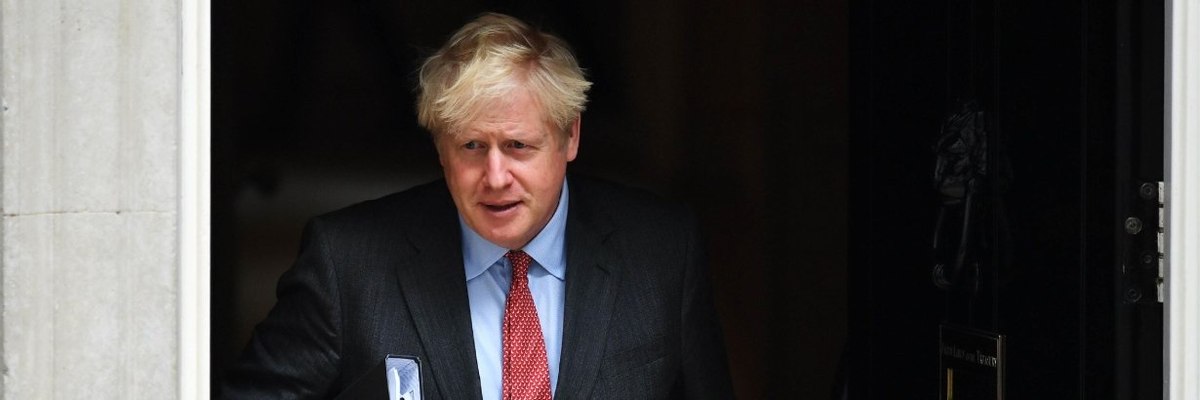Regular readers of this column may think my headline to be rather less neutral than usual. My defence is that these are distinctly unusual times. Johnson admits that he was (once again) foolish in the way he reacted to the latest Number Ten party scandal. What he does not accept is that he broke the rules by partying in the garden while the rest of the nation was observing those rules – even if it meant not being allowed to say farewell to a loved one who lay dying. If the inquiry finds him guilty on that charge he will have to resign. Many say we don’t even need an inquiry. The evidence against him is already overwhelming. Even as I write yet more evidence is emerging of the way his senior staff were flagrantly breaking the rules. The Daily Telegraph has reported that more than thirty people were drinking alcohol and dancing at Number Ten until the early hours of the morning at one of two leaving parties. The next day the Queen had to sit alone at the funeral of her husband Prince Phillip in line with the very same social distancing rules that had been broken at Number Ten. Yet more names have been added to the list of those Conservative figures demanding that the prime minister resign. What’s your view?
Let’s deal first with the facts that are beyond dispute and directly involved the prime. minister. A party was held in the garden of Number Ten. An email was sent by Johnson’s principal private secretary to about a hundred of his staff telling them it ‘would be nice to make the most of the lovely weather’ and to have ‘some socially distance drinks in the Number Ten garden’. It also suggested they bring their own booze. This happened on May 20, 20020 at a time when there were strict regulations in force in this country forbidding people from meeting up outside in groups of more than two.
We also know that the prime minister himself attended. He admitted he had done so in a statement to the House of Commons only after repeated refusals to make any comment at all amidst growing anger by the public at large and even his own supporters. He acknowledged that anger. He said: ‘I want to apologise. I know that millions of people across this country have made extraordinary sacrifices over the last 18 months. I know the anguish that they have been through, unable to mourn their relatives and unable to live their lives as they want to or to do the things they love. I know the rage they feel with me and with the Government I lead when they think in Downing Street itself the rules are not being properly followed by the people who make the rules.’
The response from Sir Keir Starmer, leader of the opposition, spoke for many. He called on Johnson to resign ‘after months of deceit and deception’ and described him as a ‘pathetic spectacle of a man who has run out of road”. He added: ‘The party’s over, Prime. Minister.’
This was not, of course, the first time Johnson was forced to apologise in the House of Commons. He had done so five weeks earlier after a video emerged of Allegra Stratton, the woman who then led his press team, joking about how there had been another get-together at Number Ten which also broke the rules. Ms Stratton was eventually forced to resign.
It is, though, the first time he has admitted that he attended a party at Number Ten. But even that admission was highly qualified. He claimed that he didn’t actually realise it was a party.
What he told MPs was that Number Ten ‘is a big department with the garden as an extension of the office, which had been in constant use because of the role of fresh air in
stopping the virus.’ True enough, but it was what he then went on to say that sent many eyebrows into orbit: ‘When I went into that garden just before six o’clock on May 20th, to thank groups of staff before going back into my office twenty minutes later to continue working, I believed implicitly that this was a work event.’
It’s worth noting at this point that tables were laid out in the garden with food and nibbles on them and guests were standing around in the sunshine enjoying the bottles of booze they had been instructed to bring with them. Perhaps Johnson had simply failed to spot all that?
At this point he did make what appeared to be another mea culpa: ‘With hindsight I should have sent everyone back inside. I should have found some other way to thank them. I should have recognised that even if it could be said technically to fall within the guidelines, there would be millions and millions of people who simply would not see it that way. People who suffered terribly. People who were forbidden from meeting loved ones at all, inside or outside.’
To those people the prime minister offered ‘my heartfelt apologies’.
But once again eyebrows were raised. What was he actually apologising for if he believed- or professed to believe – that he had been acting properly because it was a work event and not a party? Either the guidance had been followed or it had not. One moment he was apologising but the next he was suggesting his behaviour had fallen ‘within the guidelines’. The implication was that he could hardly be blamed if millions of people, as he put it, could ‘simply not see it that way’.
Johnson’s many critics say the reason people could not see it that way was because their idea of a party was rather different from their prime minister’s. So was their idea of a ‘work event’. One involved standing in a sunlit garden enjoying a drink and a chat with colleagues. The other did not. And if they were wrong and it really was a work event what, precisely, was the prime minister
s apologising for?
And what did he mean by saying he should have found some ‘other’ way to thank them if the gathering itself had not been a ‘thank you’.
What Johnson was not prepared to admit (or deny) was whether he himself had enjoyed a glass or two of wine or whether his wife Carrie had also been present. Or why the invitation to the event had demanded that everyone ‘bring your own booze’.
All these questions and many more will, we are assured, by answered by Sue Gray, the senior civil servant who has been appointed to conduct the inquiry. It is no exaggeration to say that Boris Johnson’s future rests on her findings – and it is widely accepted that she is a very tough cookie indeed. Ms Gray has led inquiries into the activities of several senior ministers, three of whom were forced to resign as a result of her findings. The former Tory minister Oliver Letwin once said: “Our poor deluded voters think the prime minister holds the reins of power. Wrong! The truth is our real leader, Sue Gray, who sits at a small desk in the Cabinet Office.’
If the inquiry finds Johnson has broken Covid laws then it is entirely possible that there will be an investigation by the Metropolitan police and even a retrospective fine. It would also prove that he had misled the House of Commons and that, in itself, could force his resignation.
But even before the inquiry delivers its findings there are many people who have already made up their minds. They include Conservative MPs who have said publicly that Boris Johnson is guilty as charged and should pack his bags. Others are keeping their own counsel.
Others have written to the chairman of the 1992 committee hoping to trigger a vote on Johnson’s leadership. The rules require a minimum of 54 letters.
But whatever happens over these next nerve-tingling weeks there is one undeniable reality. Boris Johnson’s authority has been severely damaged.
The question for you is whether that is justified. Did you believe the version of events that Johnson gave to MPs? Is it possible that what happened in the garden was, indeed, a work event rather than a party? Will you accept the result of the Gray inquiry whether it clears him or ‘convicts’ him? In short are you open to persuasion? Or do you think he should resign?
Let us know your views.






